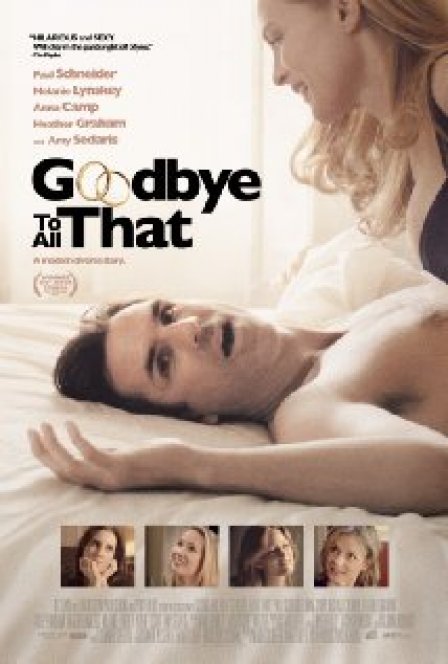Cinema, as a relatively modern invention, has often been the medium of choice when it comes to dramatizing the pitfalls and possibilities of technology. And now, for our cutting edge, we have Angus MacLachan’s film Goodbye To All That, a comedy about a hot guy who fucks a lot of hot women. It’ll probably be forgotten a year from now — even a week from now. Yet it’s as much about the perils of modernity as Metropolis or any Kubrick, and as timely as they were.
Goodbye to All That doesn’t have a lot going for it, but what it does capture is the sheer everydayness of social media, in a way that few other films of this era have even bothered to attempt. Think of David Fincher’s Social Network, or the tech-tribalism of his Girl With The Dragon Tattoo. Think of any number of low grade, high grossing horror films about teens with webcams or livestreams — even think of the fact that Miley Cyrus made a film called LOL well before she was an ironic icon of the Tumblr generation. These are all about the otherness of iTech, about the extra layer it adds to the realities the protagonists live in, whereas Goodbye To All That tries something more interesting. It shows how technology is just a thing that’s there for us to use when we’re pissed off or drunk or horny, a thing that’s seeped into the vacant spaces of our daily lives. The narrative is governed not by the usual Hollywood bromides of fate or destiny, but by the grinding mechanics of technology that we live with and take for granted.
The details are mundane, acutely so. Paul Schneider’s unwilling divorcee Otto accepts a Facebook friends request from an old flame and immediately stalks all of her photos. He then flies into a rage when he discovers his ex-wife has changed her relationship status to “single” well before he even considered it. It’s well-observed, almost better than any of the actual interpersonal drama and comedy, and could only be that way in 2014, when we’ve been around Facebook long enough for it to induce those behaviors in us. Most strikingly matter-of-fact is that it’s OKCupid, not a meet cute in Central Park or wherever, that generates Wall’s romantic (read: sexual) liaisons. And Schneider’s character knows the drill. He gets some amazing sex out of it, and a lot of weird shit too, but it’s not a huge deal for him. Social media is vital to the plot, and yet within it, it’s nothing special. It’s just there. Which is pretty much where we are as a society.
Aside from that, this is a nicely understated comedy, one of those films where each scene seems trifling, and each character seems elusive, and then you reach the end with its vague sense of melancholy and nothing much has been resolved. The economy of storytelling means some of the characters are nothing more than catchphrases (Debbie Spengler!!! indeed), while others are saved thanks only to some choice acting, like Heather Lawless’s breathtakingly sincere portrayal of Otto’s older flame. If it’s a little bit deficient in a narrative sense, and not exactly kicking over any sacred indie cows directorially, it still manages to strike a note of truth in observing a world that’s slowly transitioning away from IRL towards a profile picture and a pithy one-line biog. So while Otto Wall and his army of willing exes may not be real, they’re avatars for millions other semi-real digital losers and loners. The film nails it because what goes on inside the big screen feels as real and as fake as what goes on in front of all our little ones.

